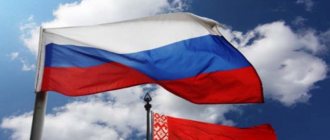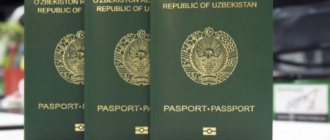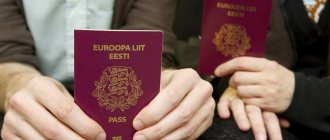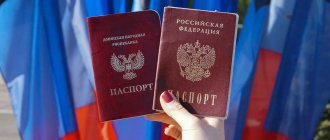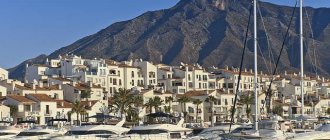Migrants know better than anyone that the process of legalization on the territory of a new country consists of several mandatory stages. It will take at least several years from entering a new state to receiving a passport. And during this time, the migrant, by the will of fate, will have to learn what permanent residence and residence permits are, what rights and responsibilities each status entails, and so on. Complicating the situation is the fact that the scope of rights and obligations can vary greatly from country to country. Let's try to understand this topic in general terms.
Residence permit: what is it
In general cases, a residence permit or residence permit is a document issued to a foreigner by the migration authorities of the country of his residence and giving the right to permanent residence in the territory of that state. In some cases, for example, if the status of a residence permit was granted to a stateless person, the corresponding document also becomes an identity document.
It is worth immediately noting that in most European countries there are several forms of residence permit, which emphasizes obtaining this status as the first stage of legalization in the country. In Russia, everything is somewhat different: residence permits are granted to foreigners who have already legalized themselves, who have received a temporary residence permit and have lived with it for at least a year.
A residence permit can be temporary or permanent, with or without the possibility of extension, issued for 6 months (for example, in Germany) or for 5 years (for example, in Russia), allowing or not allowing work. The specifics of this status depend on the legislation of the country in which it is granted. Thus, in Italy there are about 20 types of temporary residence permits and there is also a permanent one - according to the model adopted in the EU.
As a rule, each state sets a certain period, after which a temporary residence permit becomes permanent. In the vast majority of EU countries, this period is 5 years, during which the residence permit can be extended if desired.
Although exceptions are possible: for example, in Belgium, to obtain permanent residence it is enough to live for 3 years, while in Switzerland - at least 10 years. In Russia, by the way, there is no difference between residence permit and permanent residence, since according to domestic legislation the first status includes the second.
The range of rights that a residence permit gives to its holder usually includes the right to:
- unhindered movement throughout the country, free choice of place to live;
- unhindered entry and exit from the country without the need for a visa (with some exceptions) throughout the entire period of validity of the residence permit;
- employment, medical care, education and other social benefits under the same conditions as for citizens of the country;
- extension of status or obtaining permanent residence for long-term residence for 3-10 years.
At the same time, a residence permit gives rise to a number of responsibilities for its holders, including:
- the need to comply with public order and the laws of the state of residence;
- obligation to report a change of residence;
- the need to stay in the territory of the country that granted the residence permit for the minimum period of residence provided for by domestic legislation;
- the obligation to inform the migration authorities of the country of citizenship about residence outside its borders (for Russia, for example, in accordance with paragraph 3 of Article 6 of the Federal Law “On Citizenship”).
Read our publication about the easiest way to move to Europe for permanent residence.
Residence permit without employment
One of the main benefits that determines the completeness of legalization of a foreigner with a residence permit is the possibility of unhindered employment, which does not require compliance with any quotas or obtaining work permits. However, in order to attract investment, the legislation of some countries provides for a form of limited residence permit, which excludes the possibility of employment. This status is issued only to wealthy foreigners, since to obtain it, as a rule, one has to make serious investments: purchasing real estate, investing in securities. Such countries include Cyprus, Malta, Spain, Czech Republic, Andorra and some others. Read the article on how to obtain a residence permit when purchasing real estate.
In Austria, for example, an applicant for a residence permit for investment must have real estate in the country (owned or long-term lease), an insurance policy with full coverage for a year, confirm monthly income: for a family without children - at least 2,512 euros per month, for a family with children for each of them you need to add 259 euros to this amount.
In addition to the right to residence, a residence permit allows you to move freely throughout the Schengen countries, and, over time, apply for a permanent residence permit, and later for a passport of the country.
Cyprus, Portugal, and Malta, for example, provide some tax breaks and special tax regimes for business migrants.
Where is the easiest place to get a residence permit?
Due to the fact that a residence permit is the official recognition status of a foreigner, it is not easy to obtain. Economically developed countries are tightening their immigration laws every year, making migration more difficult. However, only for the poor and migrant workers looking for a better life. People with money are welcome everywhere.
Just look at the business migration programs legalized by a number of European countries. For example, the migration authorities of Greece, Bulgaria, Latvia, Spain and some other countries are ready to issue a residence permit only if a foreigner purchases real estate in the country worth 250-500 thousand euros. What other countries provide residence permits when purchasing real estate - here.
The second easiest option for obtaining a residence permit is to open your own company. They are ready to give a residence permit for this in Germany, Poland and Slovenia. Another option is investing in government securities. Hungary offers this option, requiring a foreigner to purchase government bonds in the amount of 250 thousand euros.
Read more in the article “Where is the easiest way to get a residence permit.”
Methods for obtaining a residence permit in the European Union
You can obtain a residence permit:
- ◈ Under the program of reunification with relatives. Spouses, children and parents of citizens and residents of the selected state can participate in it.
- ◈
Through marriage. A favorite option for fraudulent organizations. Be careful not to enter into a sham marriage to avoid being deported or facing criminal charges. - ◈
Through employment, admission to a university or scientific activity. A residence permit for work can be obtained if none of the local residents or citizens of the European Union are suitable for the vacancy. The study residence permit is valid for the entire duration of your studies. To stay in the country in the future, you need to quickly find a job or start a family. - ◈
As a financially independent person. To do this you need to have a source of income abroad. - ◈
Through business, investments in real estate, other assets or investments in the economy directly. Such programs are not available throughout Europe, since few countries are interested in foreign investment. - ◈
For humanitarian reasons. The applicant must prove that he is being oppressed in his homeland for political, racial, or religious reasons.
Permanent residence: what is it
Permanent residence or permanent residence is the status of a resident foreigner who does not have citizenship of the country where he primarily resides. The holder of this status is considered a permanent resident of the country, usually for an indefinite period, without the obligation to renew documents.
The term “permanent residence” itself is not used in the legislation of most countries. For example, in Germany, permanent residence means a permanent residence permit - Niederlassungserlaubnis.
Having received permanent residence, in addition to all the rights guaranteed by a residence permit, a foreigner can:
- freely acquire real estate and do business;
- arrange internal social benefits and payments;
- participate in state pension and health insurance programs;
- if permanent residence is obtained through investment, leave the country of residence for an unlimited amount of time and enter it any number of times;
- send invitations to relatives, apply for legalization of family members, and so on.
Permanent residence also differs from residence permit in that it allows you to apply for a country passport. Without obtaining the right to permanent residence, citizenship status is not granted in any European country. By the way, along with the right of residence, a foreigner, depending on the state of his residence, may also have a number of responsibilities, including:
- respect for the constitutional order, compliance with the democratic foundations and laws of the host state;
- knowledge of the language at the everyday level;
- notification to migration authorities about a change of place of residence;
- notification of migration authorities of the country of citizenship about obtaining permanent residence;
- service in the armed forces of a country (for example, in Singapore and the USA);
- fulfillment of all other duties assigned to citizens of the country (tax obligations and others).
Permanent residence for investment
As with residence permits, in an attempt to attract investors, many countries are willing to provide permanent residence rights in exchange for investment. Naturally, in a limited form and without the right to work. The list of such countries is significantly smaller than in the case of a residence permit.
Those who are considering options for a residence permit or permanent residence in Europe in exchange for investment should first of all pay attention to Cyprus.
By purchasing real estate on an EU island for more than 300 thousand euros, a foreigner has the right to accelerated receipt of permanent residence. It, however, obliges him to have an annual income of 30 thousand + 5 thousand euros for each family member. Permanent residence in Cyprus, in turn, provides the opportunity to freely move and live in the EU.
Other well-known states that issue permanent residence for investment include the Seychelles and the Bahamas. The acquired status may imply restrictions on rights, but it allows you to quickly obtain citizenship.
Obtaining permanent residence
If you do not take into account exceptions when the right to permanent residence is issued in an accelerated or simplified manner, then obtaining permanent residence is just as difficult as any other status. Like citizenship and residence permits, the opportunity to obtain permanent residence is generally tied to the period of legal residence of a foreigner in the country and whether he has the right to temporary residence.
Thus, in general cases, the owner of a residence permit after 5 years of temporary residence acquires the right to obtain permanent residence. Again, the period of mandatory residence is different in each country, for example, investors in Hungary can obtain permanent residence after 3 years.
It is important to understand that permanent residence status is not automatically granted to foreigners; for this, they must, subject to the appropriate conditions, submit an application to the migration authorities. Review of documents usually takes from six months to a year.
Fundamental differences
The most basic difference between citizenship and residence permit concerns the situation with elections: a citizen can vote and stand for election in absolutely all elections, both municipal and federal. A foreigner with a residence permit can only participate in local elections. He has no right to vote in regional, and especially state, ones.
Foreigners with a residence permit are not able to serve in the armed forces of the Russian Federation: they are not called up for military service, and contract service is also not available to them. All this is available to citizens of the Russian Federation, and military service is even mandatory for men.
A foreigner cannot be part of the crew of a Russian ship. The same applies to the crew of an aircraft - a foreigner will not be allowed to serve in civil aviation.
Foreign citizens are not eligible to work in state security agencies and a number of government services. Russians can occupy such positions.
Another difference is in obtaining a passport as a citizen of the Russian Federation. According to Russian laws, any child born in the country receives this passport if at least one of his parents is Russian. For foreigners, obtaining a Russian citizen passport is a lengthy and rather troublesome process.
In fact, these two statuses are similar in many ways; there are not many differences between them. Basically, they relate only to voting rights and the opportunity to hold certain positions in government bodies. Otherwise, a foreigner, when receiving a residence permit, acquires almost equal opportunities with Russian citizens.
Citizenship: what is it
The next and final stage of legalization of a foreign migrant is the receipt of a passport and, accordingly, citizenship. Citizenship is considered to be a stable legal connection between the country that grants it and the person acquiring it. There is also such a thing as citizenship, but in some respects it differs from citizenship.
From the moment of receiving a passport, the migrant ceases to be a foreigner, acquiring status, and with it all the rights of a citizen guaranteed by law:
- participation in the electoral process – the right to vote and be elected;
- employment in the civil service, occupation of senior government positions;
- acquisition of any form of property;
- petition for the relocation of relatives, sending invitations and calls;
- full protection of rights and freedoms by the new state of citizenship.
In some countries where second citizenship is prohibited, you will have to renounce your previous citizenship before receiving a passport (for example, Germany, Ukraine).
Acquiring citizenship
The step-by-step method of obtaining citizenship described above (residence permit-permanent residence permit-passport) is only one of the possible options - naturalization. In 2021, it is common for most migrating foreigners. But there are a number of other common ways to obtain citizenship, in particular:
- Transition by right of blood - the status of citizen arises for all persons born on the territory of the specified state, as well as from persons who are its citizens (or from one of them), regardless of the territory of birth.
- Registration is an opportunity to obtain citizenship in a simplified manner for a certain category of persons specifically specified by law (for example, Jews in Germany).
- Option is a person’s choice of one or another citizenship associated with territorial changes and the transition of the territory of residence under the jurisdiction of another country (for example, the entry of Crimea into the Russian Federation).
- Transfer is a massive forced transition of certain masses of the population from one citizenship to another, associated with the transfer of territory to another country.
- Obtaining citizenship through large investments in the economy, through the purchase of real estate.
Read more about where it is easiest to obtain citizenship here.
Living without work rights
If you are planning to obtain a residence permit or permanent residence in Europe or other countries, please note that you may be allowed to stay abroad for some time, not working, but living on existing funds. Great if you are going to make a significant contribution to the economy.
Otherwise, you will have to find another convincing reason for moving, and prove the presence of sufficient funds by presenting to the immigration officers:
- income certificate;
- current bank account statement;
- sponsorship letter (mainly relevant for students);
- pensioner's ID;
- certificate of inheritance.
In some cases, it is possible to present other documents. When collecting a package of official papers, keep in mind that the funds should be enough not only for you, but also for family members moving with you. The amount of money can be calculated based on the cost of living of the “new” country.
Permanent residence without work rights
After living in a foreign state for several years at your own expense, you can apply for permanent residence. Then a residence permit without the right to work will turn, accordingly, into an “unemployed” permanent residence permit. And to do this, you will need to prove that you have a permanent source of income: a bank certificate is not enough.
Alas, obtaining permanent residence without the right to work is quite difficult. In some countries (for example, Portugal, Spain, Hungary) there are special programs for pensioners. In other cases, only very compelling reasons are accepted.
Residence permit, permanent residence, citizenship: what is the difference
In fact, all three of these statuses are part of a single process - the legalization or naturalization of a foreigner on the territory of the state. It is important to understand that all these statuses are a sequential chain of actions of a migrant and in most cases the subsequent one is impossible without the previous one. Thus, without a residence permit, in general cases it is impossible to obtain permanent residence, and without it, in turn, it is impossible to obtain a passport. Moreover, the possibility of obtaining each of the statuses is directly tied to the number of years during which the foreigner possesses it and resides in the territory of the state.
Considering the sequence of receipt, the difference in the capacity of the rights of the granted statuses is also obvious. For a complete understanding, let's look at all this with an example.
Thus, a foreigner who has a residence permit has the right to work and temporary residence, enjoys a number of social benefits, but is obliged to report his movements and constantly renew his status. If there are no grounds for obtaining or renewing a residence permit, a citizen may be deported.
A foreigner with permanent residence has much more rights. In addition to the right to unhindered movement and an unlimited number of exits from the country, he no longer needs to renew his status, since it is most often indefinite. The holder of permanent residence is paid sick leave, he can apply for a pension, but is still limited in some rights compared to citizens of the country.
By becoming a citizen, a person acquires a stable connection consisting of mutual rights and obligations: now he can participate in elections, become an official and work in government bodies and in other professions for which restrictions are provided for foreigners. Neither a residence permit nor permanent residence can provide such rights.
Citizenship
This is the last stage of legalization in a new place. Having become a citizen, a migrant receives a full range of rights:
- ◈ can cross the border for any period and at any time;
- ◈
receives freedom of movement in countries with which the receiving state has entered into an agreement on a visa-free regime; - ◈
has the right to apply for diplomatic protection not only in the country of new citizenship, but throughout the European Union; - ◈
citizenship gives the right to work in high government positions, vote in elections and run for office; - ◈
Unlike residence permit and permanent residence, the status of a citizen is inherited by descendants. Along with the rights, the status of a citizen also gives the obligation to regularly pay taxes, defend the new country in case of danger, and be responsible for the laws of the new society. If citizenship is obtained without the help of investments, to obtain it it is necessary to confirm knowledge of the state language, history and culture.
Prolongation
Since the residence permit is issued for a certain period, it is subject to extension. In general, in order to extend the status of a temporary resident for the next period, it is necessary that the conditions stated by the candidate when initially obtaining a residence permit are maintained. In European countries, annual renewal is often provided. Although there are programs under which the residence permit is extended for several years.
To extend the visa, you must submit an application to the migration service in advance. Most often, there is no need to duplicate and update the package of documents provided when initially obtaining the status.
A candidate who has submitted an application for renewal of a residence permit is subject to no less thorough checks as during the first application. Therefore, it is very important to comply with the conditions for granting status. If immigration laws change, you must follow the new rules to confirm your status.
Permanent residents (holders of permanent residence) are relieved of the need to renew their residence permit. In some cases, every few years they just need to update their permanent residence ID card.
Main differences
Residence permit holders undergo a separate procedure, which differs from the procedure for obtaining citizenship in the list of documents, deadlines and other nuances. Let's consider what other differences there are between these two statuses, and whether it is worth spending time on obtaining citizenship.
Appearance
A permanent residence permit is issued in a “book” of 16 pages. Outwardly, it is similar to a passport, but it is a separate document proving the identity of a foreigner.
In residence permit:
- a photograph of a non-resident is pasted in;
- the dates of its execution are indicated;
- there is a separate registration number;
- All personal data is located.
A Russian citizen receives an internal passport. He no longer needs any other certificates/identification documents.
Validity
From 2021, the residence permit is valid for an indefinite period. There is no need to renew the document anymore. Citizenship also has no expiration date.
Exceptions to the general rule for residence permits:
- If a foreigner drew up a document before this date, after 5 years he can switch to the unlimited option.
- An urgent residence permit exists only for particularly valuable specialists. This is due to the fact that they are tied to the duration of the employment contract.
Rights
The owner of a residence permit has the right to live indefinitely, work without permits, receive a pension, and, if he has tax resident status, apply for tax deductions. There are no obstacles for him to enter and leave the Russian Federation. You just can’t violate the requirement of a six-month “corridor”.
Having received a residence permit, a non-resident has the right to:
- open a business in the form of an individual entrepreneur, LLC or JSC;
- receive bank cards, loans and other services;
- register at a clinic, school, or kindergarten at your place of stay (residence).
A citizen of the Russian Federation has no restrictions on his rights. He can participate in the political life of the country, serve in the army, obtain maternity capital and other subsidies from the state.
Responsibilities
The resident is required to register at the place of stay or residence, report on his income and movements every year, and pay visits to the Main Directorate of Migration of the Ministry of Internal Affairs of the Russian Federation once every 5 years. He has to use his residence permit as the main document proving his identity in the Russian Federation, along with a foreign passport.
We advise: Does purchasing real estate in Russia affect obtaining a residence permit?
Main responsibilities of a resident:
- pay taxes;
- earn in the Russian Federation no less than the subsistence level (12 thousand rubles in 2021), if the foreigner is an able-bodied person;
- change your residence permit book when you reach 14, 20, 45 years old;
- comply with migration legislation (in particular, the ban on staying outside Russia for more than 183 days a year).
A Russian citizen is obliged to pay taxes and follow the law. He does not have to report to the migration authorities.
Traveling abroad
The owner of a residence permit has the right to leave and enter the Russian Federation. He does not need to obtain a visa when crossing the border (only the migration card must be filled out).
[vote2x id=”1398" align=”center”]
Restrictions for foreigners:
- It is necessary not to stay abroad for more than six months a year.
- You have to report your departures during the annual notification, as well as by filling out a migration card.
A citizen of the Russian Federation has no such obligations. A Russian has the right to travel and live abroad as much as he likes.
Employment
A citizen of the Russian Federation and a residence permit holder have the right to work without obtaining permits or patents. When employing a foreigner with a residence permit, the employer must send a notification to the Main Directorate for Migration of the Ministry of Internal Affairs of the Russian Federation.
When registering, a non-resident provides:
- your passport;
- residence permit;
- educational documents;
- work book.
Otherwise, the procedure for hiring a person with a residence permit does not differ from the procedure for hiring a Russian. An employer does not have the right to refuse to hire a foreigner due to his status.
Control by migration authorities
The Main Directorate for Migration Affairs of the Ministry of Internal Affairs has the right to check the registration of a foreigner and cancel his residence permit in case of violations. Control by government agencies is quite strict. If the status is canceled, the non-resident must leave the country within 15 days. Citizens are not subject to such supervision.
Obtaining a medical insurance policy
Compulsory medical insurance policy is available to citizens of the Russian Federation and residence permit holders. Under this policy, people receive care in case of illness in state clinics in Russia.
To apply for a policy you must submit:
- residence permit;
- passport;
- SNILS.
Obtaining maternity capital
Matkapital is allocated from the budget and issued only to Russian citizens.
An exception for foreigners with a residence permit is made only in cases of death of a Russian citizen mother or deprivation of her parental rights. Only under such circumstances does a foreign father have the right to claim maternity capital. We recommend: Instructions for filling out the form for a residence permit in 2021
Registration of pension
The owner of a residence permit has the right to apply for a Russian pension, just like a Russian citizen. To do this, upon reaching retirement age, contact the Pension Fund at your place of stay (residence). The Pension Fund will request information from the fund in the foreigner’s home country and issue payments to the resident.
First you have to get a “MIR” card from a Russian bank. The procedure coincides with the one that the Russians themselves go through.
Deprivation of status
A residence permit can be lost when committing serious criminal or administrative offenses, long-term (more than six months) stay abroad, low annual income (below the subsistence level in the region), or identification of false information in the application form.
The list of grounds for termination of status is very long. But loss of citizenship occurs extremely rarely - if a foreigner decides to engage in terrorism, extremism, or is recognized as a state spy. The reason may also be obtaining citizenship of another country.
What is a Golden Visa?
Many users believe that the concept of a “golden visa” is a preferential treatment of certain categories of people by foreign governments. Privileges manifest themselves in the form of no need to renew a visa, additional opportunities in the field of employment and education, etc.
In fact, a golden visa is the provision of permanent residence to participants in investment projects. This means that the card is issued for investing funds in certain startups and projects that have government support. Based on this, a “golden visa” is a standard residence permit or permanent residence permit, obtained on preferential terms in a simplified manner.
Most often, the card involves not only investing in economic projects, but also in purchasing your own real estate. Among all European countries, Russians seeking to move to Spain, Portugal, Greece, Andorra, Lithuania and Latvia have the greatest chance of obtaining a document.
Migration processes and the differences between them
The literal meaning of the concept “migration” is the movement of people from one country to another. This may concern individuals or entire national and ethnic groups moving both within individual territorial entities (internal migration) and beyond their borders (external migration).
As a rule, migrants leaving a country pursue specific goals, and according to them, migration can be classified as:
- permanent – relocation with the aim of leaving permanently for permanent residence;
- temporary - moving for a certain period of time, not related to the implementation of any activity;
- pendulum – short-term migration associated with certain goals, after the completion of which follows a return home. A prime example is individuals wishing to immigrate to obtain a job or education;
- seasonal - a short-term move associated with seasonal tasks, for example, harvesting.
Persons participating in these processes form migration flows. The direction of this flow determines the difference between immigration and emigration.
Thus, immigrants (from the Latin immigro - “I move in”) are usually called individuals who move to a foreign country for temporary or permanent residence, considered in relation to the country to which they are moving. For example, for Russians in the Russian Federation, Uzbeks are immigrants. Accordingly, Russians who moved to the United States are immigrants for Americans. That is, immigration is the entry of a foreigner into a country that is foreign to him to live in it, regardless of his goals.
An important condition is the legality of immigrants’ entry into a new country. To control immigration flows, many countries even introduce immigrant quotas.
Foreigners admitted for permanent residence usually undergo a special integration course for successful integration into the national society. The final stage of immigration is obtaining citizenship of your new country.
Emigration is a concept of a different, opposite nature. The definition of emigration comes from the Latin emigro - “moving out”. It means leaving the country and moving to another state other than your native one. It should not be confused with short-term trips; emigration is always associated with a change of place of residence, although sometimes on a temporary basis. Such relocation does not at all mean a mandatory change of citizenship. For example, Russia allows its citizens to have several other passports, especially if they live outside the Russian Federation.
Hence, an emigrant is a person who leaves the country of his citizenship. Please note that, unlike immigro, emigration cannot be internal - this process involves mandatory crossing of the state border in order to move to a new place of residence abroad.
Emigration is usually caused by the search for a better, more economically favorable place to live, which is why it usually prevails over immigration in undeveloped countries. In the prosperous, the opposite is true.
Therefore, in order to determine which is correct: immigration or emigration, it is important to understand in relation to which state this concept applies. So, if we are talking about the country from which a person is leaving, the concept of “emigrant” is used, and the process itself is called emigration. The migrant will be an immigrant in relation to the state to which he is moving, and the process itself will be called immigration.
It is important to understand that the difference between migration and emigration is insignificant. Thus, migration is the process of moving in general, and emigration, like immigration, is the direction of the migration flow in relation to a particular country.
The difference between residence permit and permanent residence
In global migration practice, an order has been adopted according to which a foreigner goes through the following stages of legalization: obtaining a residence permit, then permanent residence and the last stage - citizenship. The main difference between permanent residence and a residence permit is permission to cross the border multiple times without visas and the possibility of employment without obtaining additional documents. Other information about the similarities and distinctive features of residence permits and permanent residence permits is also presented in the table.
Rights provided by the status of permanent residence permit
| Duration of residence in the Russian Federation | Allowed to reside in any region of the country for the entire duration of the visa, which can be extended | Possibility of indefinite residence, freedom to cross the border |
| Employment Opportunity | Possibility of entrepreneurial activity or employment with a permit | Permission to work in any field except the civil service |
| Free education and health care | Eat | The right to take advantage of all benefits and social privileges available to citizens of the country |
| Possibility of purchasing real estate, car | Yes, plus a driver's license | Yes, plus a driver's license |
| Status perspective | The right to apply for permanent residence after a certain period | Opportunity to apply for citizenship |
| Travel abroad | Obtaining visas to enter other countries at consulates and embassies in the country of migration using a simplified scheme | Without obstacles, obtaining visas to other countries on the same basis as citizens of the Russian Federation |
| Participation in elections | No | No |
Each country establishes an individual procedure for the legalization of a foreigner on its territory. Knowing the difference between permanent residence and residence permit is important in order to correctly develop a strategy for obtaining migrant status.
How can a foreigner legalize his stay in the Russian Federation?
Migrants who arrived on the territory of the Russian Federation for further residence are required to declare themselves to the unit of the Main Directorate for Migration Affairs of the Ministry of Internal Affairs at their chosen place of residence.
At the initial stage, you will need to acquire temporary registration and collect a package of documents: only in this way will the migrant be able to legalize his status, obtain the right to work and freely cross the border.
Let's figure out how the migration laws of the Russian Federation regulate policy in this regard.
Temporary residence permit (TRP)
A foreign citizen who has entered Russia for long-term residence must obtain a temporary residence permit. The permit will allow the migrant to legally stay in the Russian Federation, work and use medical care for three years without obtaining additional documents. A stamp with a temporary residence permit is placed in the migrant’s passport or identity card. Along with it, a visa is issued for multiple border crossings.
Find out more useful information about what RVP is.
Residence permit (residence permit)
A residence permit is the next stage of legalization of a migrant after a temporary residence permit. The holder of a residence permit enjoys almost the same rights as citizens of Russia. If we carefully consider the concepts of “residence permit” and “citizenship”, there is a difference between them - a ban on voting and working in the civil service, which for the average person, in fact, does not play a big role.
The residence permit is issued for a period of 5 years and can be extended many times. If a foreigner has a residence permit, he can always apply for Russian citizenship.
Read more about what a residence permit is.
Permanent residence (permanent residence)
In a number of countries, a document of permanent residence is issued to a migrant after continuous residence in the country for 3-6 years. There are also other grounds that give the right to immediately obtain permanent residence: for example, marriage with a citizen of the country, investment in the state economy, etc.
In the migration legislation of the Russian Federation, the term “permanent residence” is not used.
Instead, a foreigner can apply for a temporary residence permit, then a residence permit, and then, if desired, submit an application for citizenship.
We also recommend that you study in more detail what permanent residence is.
Citizenship concept
Acquisition of Russian citizenship is possible by birth or through a simplified scheme, so-called naturalization. How fast and simple the process of obtaining a Russian passport will be depends on the migrant’s personal situation.
What matters here are the grounds for filing an application, good results in passing a test on knowledge of the Russian language, the history of the Russian Federation and its legislation, willingness to renounce the citizenship of the country from which the migrant came, and convincing evidence of a legal source of income.
The difference between temporary residence permit and temporary residence permit
Since the main goal of legalizing a foreigner is to legalize residence on the territory of the Russian Federation, to gain the opportunity to work and freely cross the border without issuing additional visas and permits, the difference between a temporary residence permit and a residence permit lies primarily in the rights that they provide.
For better understanding, the information is given in tabular form.
Rights provided by the status of a temporary residence permit
| Validity period and possibility of extension | 3 years non-renewable | 5 years, can be renewed multiple times |
| Medical service | Free within one subject of the Russian Federation where the migrant has temporary registration | Free in any subject of the Russian Federation |
| Pension provision | No | Yes |
| Status perspective | The right to apply for a residence permit | The right to apply for Russian citizenship |
| Duration of residence in the Russian Federation | 3 years | 5 years or more |
| Traveling within the territory of the Russian Federation | Unhindered movement throughout the country | The ability to change your place of residence within the country without prior notification to the authorities of the Main Directorate for Migration Affairs of the Ministry of Internal Affairs |
| Crossing the Russian border | By multiple visa | Entry without a visa |
| Employment | The right to employment within one subject of the Russian Federation, where the migrant has temporary registration, work without a patent | The right to work without additional documents. It is prohibited to hold the position of a civil servant |
| Possibility to take out a loan | No | Yes |
| Right to education | No | Yes |
| Responsibilities | Applying for a visa for multiple border crossings | Annual notification of the Main Directorate for Migration Affairs of the Ministry of Internal Affairs about your location |
| Participation in elections | Forbidden | Prohibited from voting in elections |
| Cancellation of status | Cancelled if the foreigner has been continuously absent from Russia for more than six months | Cancelled in case of prolonged absence from the territory of the Russian Federation for 6 months |
By submitting documents for a temporary residence permit, a migrant can remain on the territory of the Russian Federation even after the end of the 90-day period established by law.
Now let's figure out how a residence permit differs from a temporary residence permit in terms of accessibility to different categories of foreigners.
Any adult foreigner can obtain a temporary residence permit at the first stage of legalization, while only a certain category of migrants can apply for a residence permit, bypassing a temporary residence permit.
Thus, the following groups of persons can take advantage of a simplified scheme for obtaining a residence permit:
- citizens of the Republic of Belarus;
- native speakers of Russian whose direct ancestors lived in the territory of modern Russia;
- highly qualified specialists and their family members;
- persons who have the right to obtain Russian citizenship, but refused it for personal reasons.



